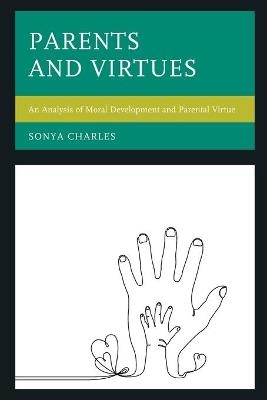
Parents and Virtues
An Analysis of Moral Development and Parental Virtue
Seiten
2021
Lexington Books (Verlag)
978-1-4985-5007-9 (ISBN)
Lexington Books (Verlag)
978-1-4985-5007-9 (ISBN)
This book considers what virtue theory can tell us about parenting in relation to both moral development and specific ethical dilemmas. It is of interest to those who work in virtue theory, applied ethics, and the ethics of parenthood.
Although individual parents face different issues, Sonya Charles believes most parents want their children to be good people who are happy in their adult lives. Parents and Virtues: An Analysis of Moral Development and Parental Virtue starts from the question of how parents can raise their child to be a moral and flourishing person. At first glance, readers might think this question is better left to psychologists rather than philosophers. The author proposes that Aristotle’s ethical theory (known as virtue theory) has much to say on this issue. Aristotle asks how we become moral people and how that relates to leading a good life. In other words, his motivating questions are very similar to the goals parents have for their children. The first part of this book details what the basic components of Aristotle’s theory can tell us about the project of parenting. In the second part, the focus shifts to consider some issues that present potential moral dilemmas for parents and discuss whether there are specific virtues we may want to use to guide parental actions. Parents and Virtues will be of particular value to scholars and students who work on the ethics of parenthood, virtue theory, and bioethics.
Although individual parents face different issues, Sonya Charles believes most parents want their children to be good people who are happy in their adult lives. Parents and Virtues: An Analysis of Moral Development and Parental Virtue starts from the question of how parents can raise their child to be a moral and flourishing person. At first glance, readers might think this question is better left to psychologists rather than philosophers. The author proposes that Aristotle’s ethical theory (known as virtue theory) has much to say on this issue. Aristotle asks how we become moral people and how that relates to leading a good life. In other words, his motivating questions are very similar to the goals parents have for their children. The first part of this book details what the basic components of Aristotle’s theory can tell us about the project of parenting. In the second part, the focus shifts to consider some issues that present potential moral dilemmas for parents and discuss whether there are specific virtues we may want to use to guide parental actions. Parents and Virtues will be of particular value to scholars and students who work on the ethics of parenthood, virtue theory, and bioethics.
Sonya Charles is associate professor in the Department of Philosophy and Comparative Religion at Cleveland State University.
Introduction: What can virtue theory tell us about parenting?
Part I: The Parental Role in Upbringing
Chapter 1: Instilling Virtue
Chapter 2: Parental Wisdom
Chapter 3: Flourishing
Part II: Parental Virtues
Chapter 4: On the Immorality of Lying to Children about Their Origins
Chapter 5: Shaping Bodies, Shaping Lives: Parental Authority and the Child’s Future
Chapter 6: Deciding to Become a Parent
Bibliography
About the Author
| Erscheinungsdatum | 17.05.2021 |
|---|---|
| Verlagsort | Lanham, MD |
| Sprache | englisch |
| Maße | 153 x 219 mm |
| Gewicht | 222 g |
| Themenwelt | Geisteswissenschaften ► Philosophie ► Ethik |
| Geisteswissenschaften ► Philosophie ► Geschichte der Philosophie | |
| Geisteswissenschaften ► Religion / Theologie | |
| Sozialwissenschaften ► Soziologie | |
| ISBN-10 | 1-4985-5007-X / 149855007X |
| ISBN-13 | 978-1-4985-5007-9 / 9781498550079 |
| Zustand | Neuware |
| Haben Sie eine Frage zum Produkt? |
Mehr entdecken
aus dem Bereich
aus dem Bereich


